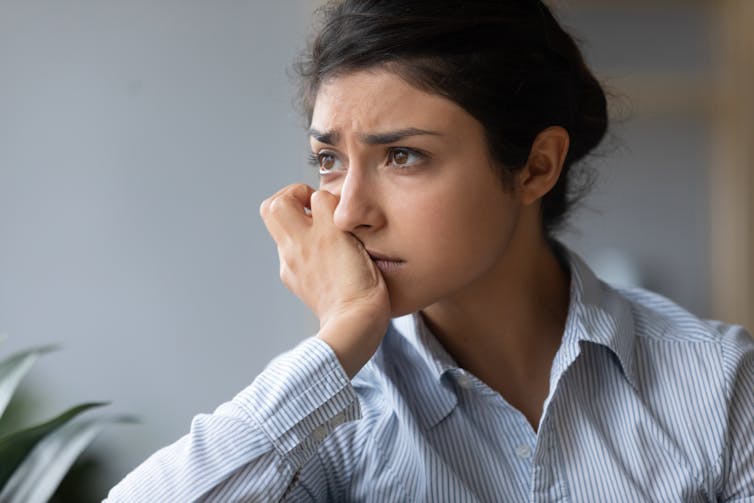
Pragya Agarwal, Loughborough University
Mothers – and non-mothers. Our language creates the falsehood that being with a child is a norm. Words like childless or childfree firmly place the person without a child as the one lacking. Women who decide not to have children are marked as outsiders by our social and cultural norms.
And the expectation is not just that women will be mothers – it is that they will be the right kind of mother.
Should I have children? The pieces in this series will help you answer this tough question – exploring fertility, climate change, the cost of living and social pressure.
Women commonly search for the perfect time to be pregnant, delaying pregnancy decisions. This might seem like autonomy, but it is often a consequence of the vast gender inequality still existing in our society. Women lack the privilege and support to have children at “less convenient” times.
This is because no matter what we want to believe, women do not have the same status as men. They carry more mental and emotional labour at home, working longer hours than men who are fathers.
And although there has been a significant rise in the number of single parents in the UK, there are still many barriers – social and practical – to going solo. As poet and essayist Adrienne Rich wrote in her work Of Woman Born:
The ‘childless woman’ and the ‘mother’ are a false polarity, which has served the institutions both of motherhood and heterosexuality.
The idealisation of motherhood undermines all women, irrespective of their own choices, as I write in my book (M)otherhood: On the choices of being a woman.
The reasons people do not want to have children may be culturally, socially, environmentally and financially motivated. These can be individual choices – or people might be childfree not by choice.
I continue to wonder if, even in this era of unprecedented freedom and choice, women are really free to understand their own reproductive options or have the autonomy to shape these decisions.
Decisions and regret
Often, discussions about having a child are shaped in terms of regret. What if you regret it and it is too late? What if you change your mind and it is too late?

Studies on regretting having children focus on mothers. It is not considered out of the ordinary for a man to not want children, to be child-free. Women’s fertility choices are continuously scrutinised, while we don’t often discuss biological clocks for men too.
In 2023, researchers from Michigan State University found that one in five adults in the state, or about 1.7 million people, didn’t want to have children. This was followed up with another study, published later in 2023, which looked more deeply at people who are childfree by choice. Turns out they’re pretty happy with their decisions.
On the other hand, studies have shown that people who have children are more likely to regret this choice. In 2021, a survey by YouGov of over 1,200 British parents found that 8% say they currently regret having children. And a 2016 YouGov study in Germany of over 2,000 people found that 19% of mothers and 20% of fathers said if they could decide again, they would not want to have children.
There may be many reasons for these regrets, but a lack of childcare options, and lack of support are likely to be significant. We don’t have a village any more. We are trying to do it all, ourselves, alone.
I keep wondering why society still puts so much pressure on people, especially women, to have children – why it tells them that their primary, most important goal in life is to be a mother, but then quickly labels them a bad mother, an inattentive mother, a neglectful mother.
The reproductive justice movement aims to change this. It asserts the human right to maintain personal bodily autonomy, to have children or not have children, and to parent the children we have in safe communities. It brings focus to marginalised communities, those who are most harmed due to barriers in reproductive health, and those who are also most at risk of sexual and reproductive violence.
Reproductive inequalities also affect those whose lives are outside the binary framework. We cannot discuss autonomy without considering the intersectional aspects of its effects on trans, non-binary, agender and gender non-conforming people.
A choice can sometimes be an illusion. While we might believe that we are perfectly autonomous and free to make our decisions at will, we are never free of our societal and cultural context.
Pragya Agarwal discussed the themes in this article as keynote speaker at The Conversation’s Quarter Life live event, Should I have children?, held with Waterstones in November 2023. Read more articles on this topic here.
Pragya Agarwal, Visiting Professor of Social Inequities and Injustice, Loughborough University
This article is republished from The Conversation under a Creative Commons license. Read the original article.

